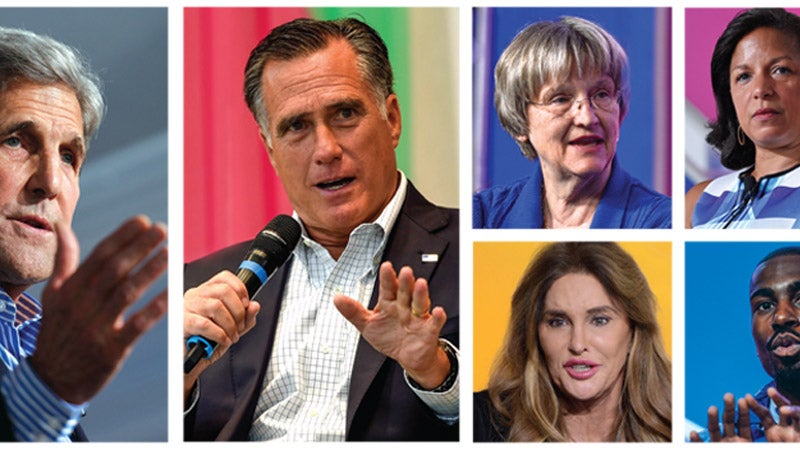The 2016 festival kicked off with Spotlight Health, a three-day forum on domestic and international health topics that attracted participants from 39 states and 37 countries. “The word is out that Spotlight Health is the health conference to attend,” says Ruth Katz, the director of the Institute’s Health, Medicine and Society Program.
The Institute’s teams begin putting the festival together in September, nearly a year before attendees set foot on campus. By looking at current global events and trends, Institute leaders and staff from The Atlantic organize ten to 12 topic tracks and begin to reach out to potential speakers. “The festival grows and evolves from there,” says Killeen Brettmann, the managing director of public programs at the Institute. “Often, the direction we thought a track would take in September is vastly different in April. The world changes.” This year was no exception: “Just look at the Syrian refugee crisis, or Europe being on edge after a year of terrorist attacks: those issues played a much deeper role in the festival than we first planned for.”
World events change schedules at the last minute, too. The Brexit vote, for example, occurred just as the festival was starting. That meant rescheduling sessions for Christine Lagarde, the managing director of the International Monetary Fund, and Secretary of State John Kerry, so they could make impromptu trips to Europe. However urgent their new commitments, both speakers came—and when newsmakers come to the festival, the festival makes news. For example, this year, Attorney General Loretta Lynch had to explain an unexpected social call from former President Bill Clinton.
The festival is always expanding and looking to increase every kind of diversity. The Youth Forum brought the speakers of the Festival to a younger audience, including the winners of the Aspen Challenge—teams of high school students who created solutions to pressing issues in their communities—and the Bezos Scholars, 30 high school students and educators from across the United States and the Africa Leadership Academy. Senior Institute staff and affiliates nominate scholars to attend the festival, and special “patron passes” directly fund the program.
This year, patrons supported 300 scholars from across the United States and 30 countries. Each was selected for leadership skills and accomplishments. “Scholarships allow us to bring new voices from all over the world,” says Peggy Clark, executive director of Aspen Global Health and Development. “A young LGBT activist from Nigeria, a community health worker from Colorado, a technology entrepreneur—all of these scholars add life and complexity to the magic that is Spotlight Health.”
High-profile events are live-streamed, and audio and video of most sessions are available within days of the festival’s conclusion, bringing Aspen events to the world. And the world is tuning in: a livestream of Secretary Kerry, for instance, reached nearly one million people. Going forward, the festival aspires to hold more events in town in order to connect more deeply with the Aspen community. In addition to reaching new audiences, the Aspen Ideas Festival is linking attendees and speakers by creating new networking opportunities.
“With the Ideas Festival, we open the doors to the Institute,” says Kitty Boone, the Institute’s executive director of public programs. “We’re looking to the future, and with new and different technologies available to us, we’re flinging those doors open even wider.”


